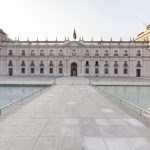- The draft new Constitution establishes that the Central Bank will be an autonomous body of a technical nature, similar to what is established in the current Constitution.
- However, there are some relevant differences with respect to its current regulation, which could impact its future functioning. Here we review them.
New Constitution Draft
The Central Bank is defined as “an autonomous body with legal personality and its own assets, of a technical nature, responsible for formulating and conducting monetary policy“, and then adds that “the law shall regulate its organisation, powers and control systems, as well as the determination of coordination bodies between the Bank and the government”.
It further states that the purpose of the Central Bank would be, in particular, to ensure price stability and the normal functioning of internal and external payments in order to contribute to the well-being of the population, and that it should taking into account the general orientation of the government’s economic policy in making its decisions. In addition, it states that in order to fulfill its objectives, the Central Bank must consider financial stability, exchange rate volatility, employment protection, care for the environment and natural heritage and the principles set forth in the Constitution and the law.
As for its powers, it states that these would be the regulation of the amount of money and credit in circulation, the execution of credit and international exchange operations, the dictation of norms in monetary, credit, financial and international exchange matters, and any others established by law.
With regards to the limitations to which the Central Bank would be subject, it establishes that it could only carry out operations with financial institutions, and that in no way could it grant them its guarantee, nor acquire documents issued by the State, its agencies or companies. Exceptionally, it could acquire and sell instruments issued by the Treasury. Moreover, no public expenditure or loans could be financed with direct or indirect credits from the Central Bank. In addition, the Central Bank would be obliged to report periodically to Congress.
The management and administration of the Central Bank would be entrusted to a Council. The general regime applicable to said Council would be as follows:
- The Council would be composed of 7 councillors appointed by the President of the Republic, with the agreement of the majority of the members of the Chamber of Deputies (Congress) and the Chamber of Regions, in joint session.
- Councillors would serve for a term of ten years, would not be eligible for re-election and would be renewed on a partial basis.
- The directors would be professionals with a proven track record and expertise in matters related to the competencies of the Central Bank.
- The Chairman of the Council, who would also be the Chairman of the Bank, would be appointed by the President of the Republic from among the members of the Council, and would serve for five years or the shorter of the time remaining on the Council, and could be re-elected for a further term.
- Councillors may be removed from office by a resolution of the majority of the members of the Supreme Court. Removal may only be based on the circumstance that the councillor concerned has committed serious acts contrary to public probity, or has incurred in any of the prohibitions or incompatibilities established in the Constitution or the law, or has concurred with his or her vote in decisions that seriously affect the achievement of the Bank’s purpose.
- Those who in the 12 months prior to their appointment have been involved in the ownership or served as a director, manager or chief executive of any company providing financial intermediation services may not be members of the Council, without prejudice to any other disqualifications established by law. Once they have ceased to hold office, members of the Council shall have the same incompatibility for a period of twelve months.
Differences between the draft new Constitution and the current Constitution
The draft new Constitution is considerably more extensive in regulating the Central Bank than the current Constitution, establishing at the constitutional level matters that are currently found in the Organic Constitutional Law of the Central Bank (“LOC“), such as its purpose, powers and its Council.
Regarding the definition of the Central Bank, the draft new Constitution is similar to the current Constitution, except that the draft new Constitution adds that the Central Bank would have its own legal personality (which is currently provided for in the LOC) and that it would be in charge of formulating and conducting monetary policy.
In addition, the draft new Constitution takes from the LOC the provision that the Central Bank, when adopting its agreements, shall take into account the general orientation of the Government’s economic policy, but innovates by adding that the law shall determine, among others, the coordination instances between the Central Bank and the Government, a provision that is not currently contemplated in the current Constitution or in the LOC. The draft is also innovative in terms of the incorporation of the principles that the Central Bank must consider in order to fulfill its objectives, indicating, among others, the protection of employment, care for the environment and natural heritage.
There are several differences in relation to the Central Bank Council: it is currently regulated by the LOC and not the Constitution; the number of councillors is increased from 5 to 7; and, given the elimination of the Senate proposed in the draft, it would no longer be the Senate but the Chamber of Deputies (Congress) and the Chamber of Regions who must jointly agree on the appointment made by the President of the Republic.
Finally, other aspects of the existing Constitution (and also of the LOC) that were not included in the draft new Constitution are those relating to cases of foreign war or danger of war and the principle of non-discrimination, as the following are existing provisions:
- “In the event of foreign war or danger thereof, as qualified by the National Security Council, the Central Bank may obtain, grant or finance credits to the State and public or private entities“.
- “The Central Bank may not adopt any agreement that directly or indirectly means establishing different or discriminatory rules or requirements in relation to persons, institutions or entities carrying out operations of the same nature.
Effects of the changes to the Central Bank if the draft new Constitution is adopted
If the draft new constitution is approved, many matters applicable to the Central Bank will depend on the provisions of the transitory rules and future laws regulating its organization, attributions and control systems.
This would be the case, for example, with the appointment of councillors by the President of the Republic, since this would have to have the agreement of the majority of the members of the Chamber of Deputies and the Chamber of Regions, in joint session, in circumstances in which these authorities do not currently exist and are created by the draft of the new Constitution, so it will depend on what the transitional rules establish.
Under certain circumstances, Central Bank advisors could be removed from office by a resolution of a majority of the members of the full Supreme Court. The members of the Supreme Court would be appointed by the new Council of the Judiciary. Thus, the permanence of the members of the Central Bank Council will depend to a large extent on the Council of the Judiciary.
In addition, since the draft states that the removal of directors of the Central Bank may be based on the circumstance that the affected director has voted on decisions that seriously affect the achievement of the Central Bank’s purpose, it could be interpreted that a director whose vote does not consider financial stability, exchange rate volatility, employment protection, care for the environment or natural heritage could be removed from office.
Finally, the new disqualification that prevents those who in the 12 months prior to their appointment have been involved in the ownership or served as a director, manager or chief executive of any company providing financial intermediation services from serving on the Central Bank Council limits access to the Central Bank, a technical body, to persons with financial expertise and technical skills.
Contact




